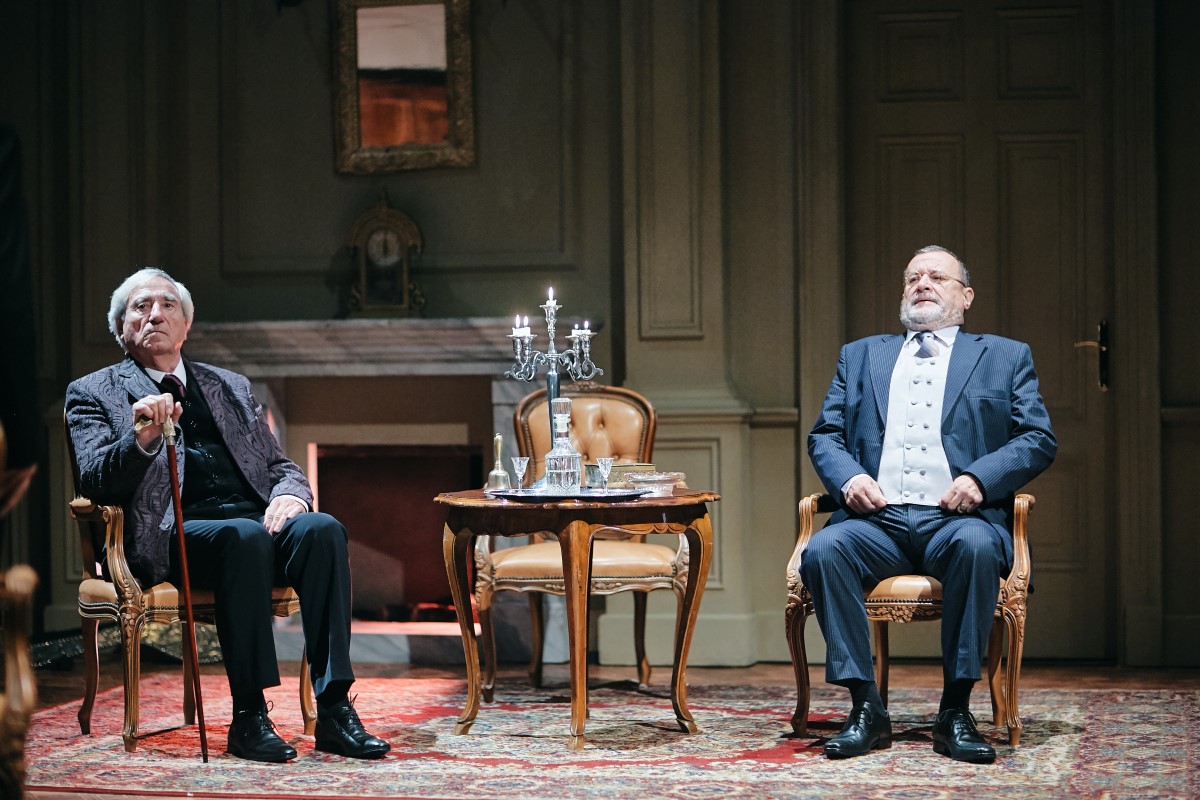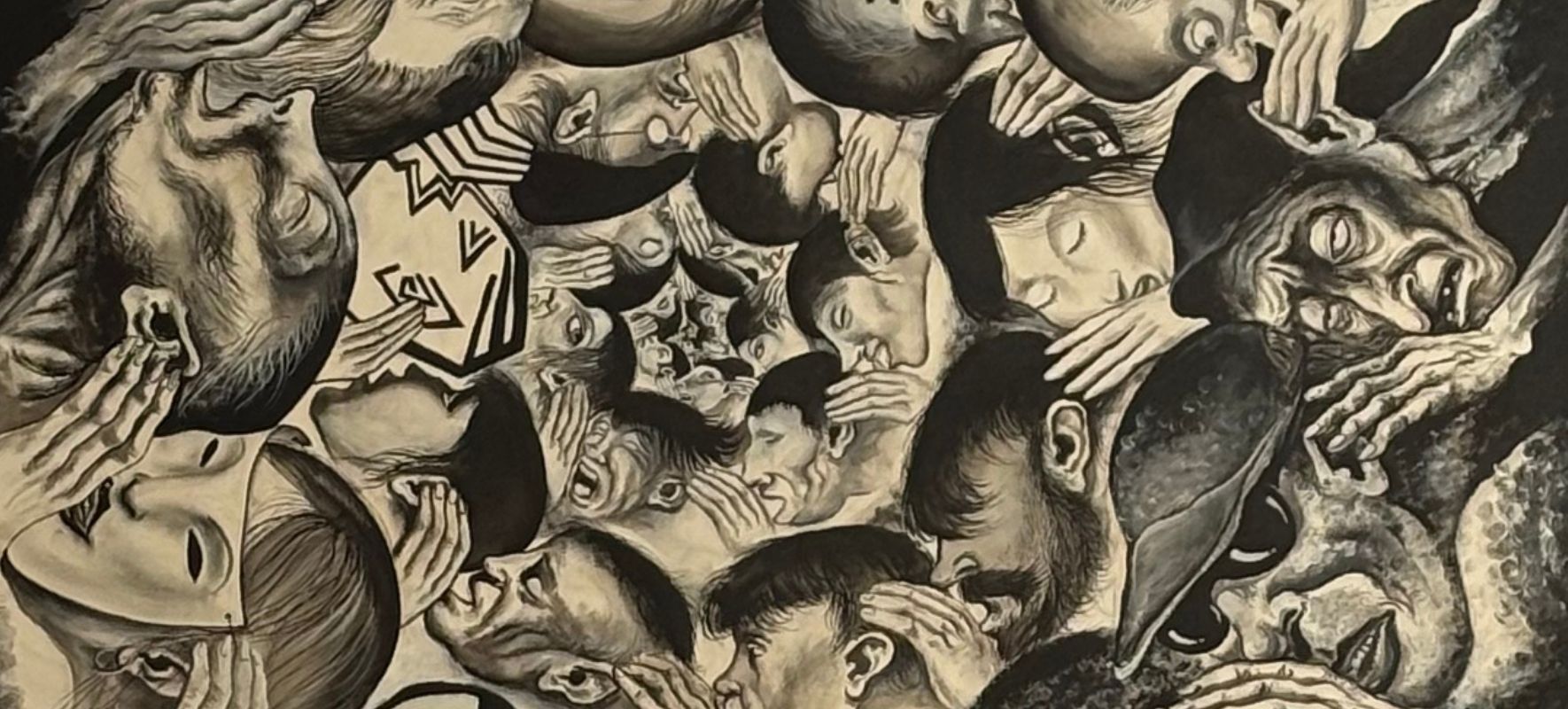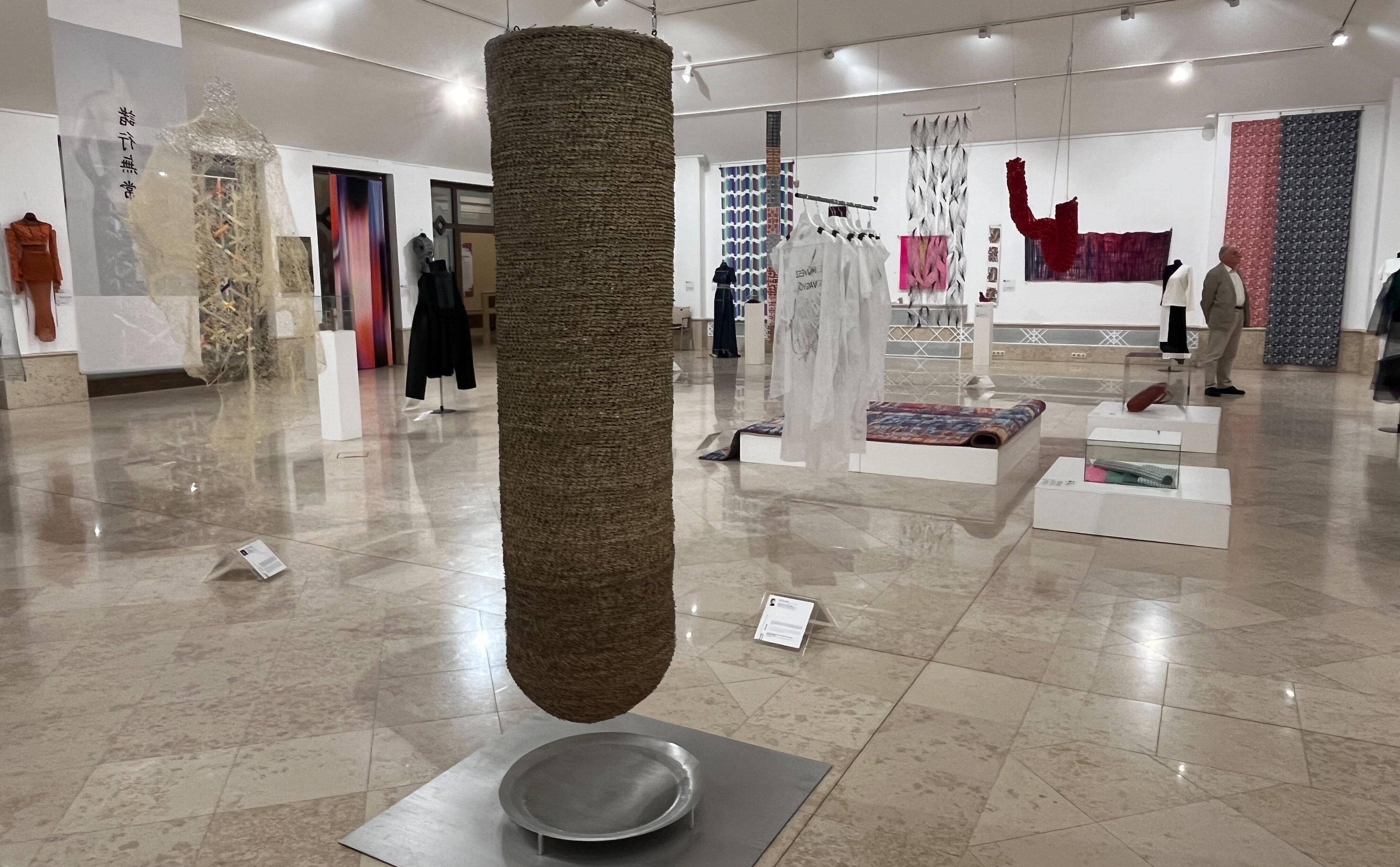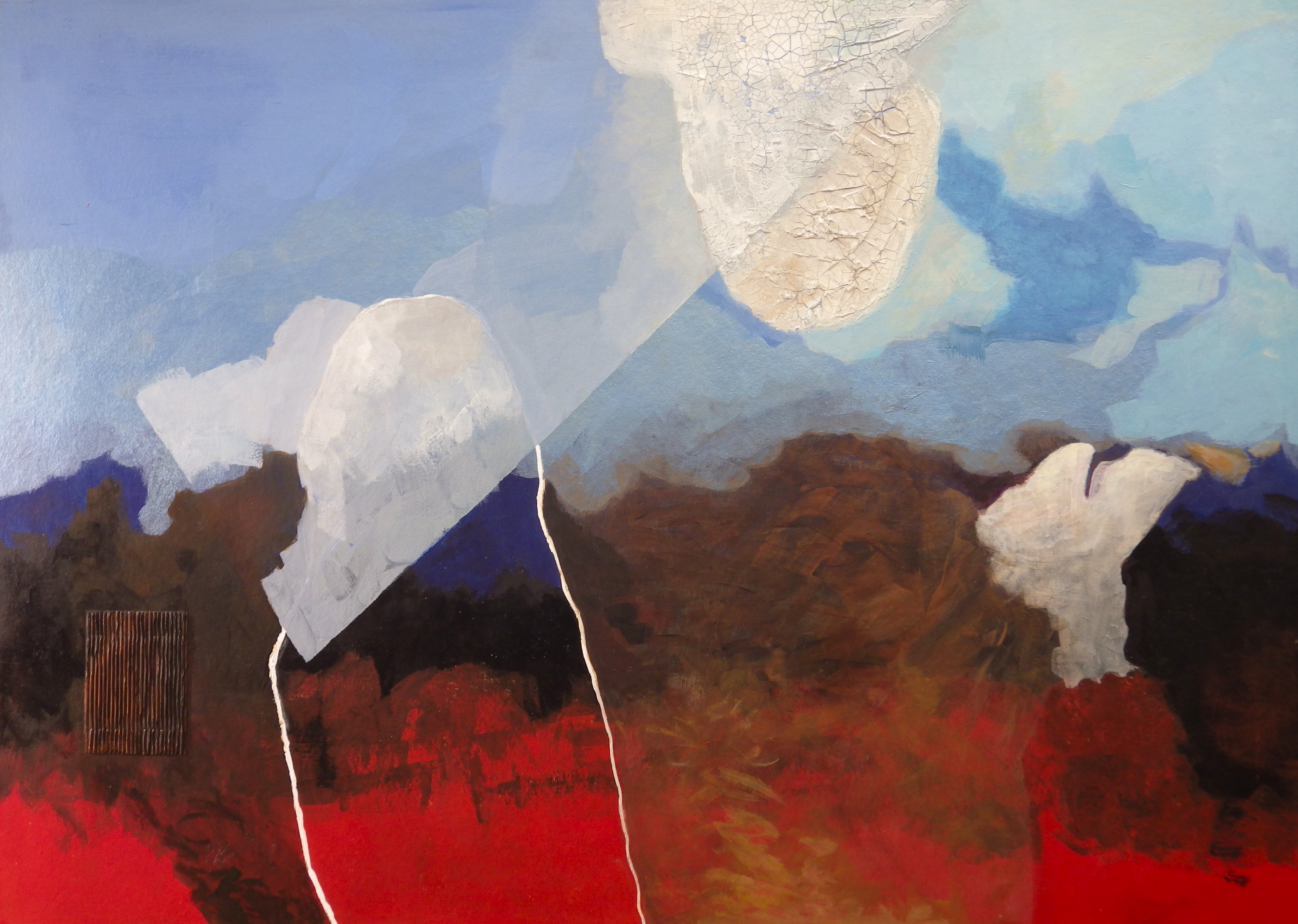
On 21st January 2020, Pesti Vigadó is hosting Petőfi Theatre of Sopron's performance of Hungarian novelist, playwright and essayist Sándor Márai's drama entitled ‘Embers' directed by András Pataki. The play, which offers a portrayal of sweeping emotions and acts of human greatness, features Tibor Szilágyi and Ferenc Szélyes in the two leading roles of the General and Konrad. In the drama, during the course of a single night, the two characters talk about events that took place 42 years ago. On the occasion of hosting the above performance, Pesti Vigadó interviewed the two actors. Interview by Nikolett Nyírő
Nikolett Nyirő: In what way is this very adaptation of this play by Márai special?
Tibor Szilágyi: This short novel by Márai is an internationally acknowledged and highly acclaimed literary piece, which has been translated into many languages. In fact, many adaptations of this play have been prepared in Hungary, but our version is unique and faithful to the original in that Márai himself produced this version of the adaptation of his novel while he was in voluntary exile in the USA. We cannot imagine any greater act on the part of a playwright than what Sándor Márai did: he prepared a 40-page-long version of his world-famous novel.
Ferenc Szélyes: Unlike in the past, today's actors are not rewarded with roles they wish to play on stage. I and Tibor see this performance as a reward for two elderly actors. The novel is a fine literary piece and it rewards the performing actors with a lot of joy as the theme is evergreen and is also quite topical these days: the drama is about friendship, love, fidelity and loyalty, which themes never go out of fashion or lose their topicality. I am convinced that there will be people among the audience who formerly struggled or have been struggling with these problems or will experience such events during their lives; that is the reason why this staging is seen as a performance addressing modern and topical issues in a meaningfully rich presentation and discussion.
Nikolett Nyirő: What happens during the two main characters' conversation in the play?
Tibor Szilágyi: The plot is about events that took place almost 50 years ago and about a friendship that formed at a military academy at that time. Konrad came from a poor family and studied well, while the General came from a wealthy family and had bad results. Despite the enormous social differences, their relationship turns into friendship, but as it sometimes happens in real life Konrad introduces to the General a woman called Krisztina, who eventually becomes the General's wife. Krisztina chooses the General, but as the novel explains Krisztina chooses the General because Konrad was poor and because he did not have the courage to live with Krisztina in poverty. Then Konrad goes abroad to forget his failed love but does not want to dishonour his friendship with the General, either. Then, 42 years later he visits the General in his old home not knowing that Krisztina had died, and Konrad and the General talk endlessly during a night. The ensuing conversation between them develops into an intellectual and psycho thriller, which this almost one-hour-long performance truthfully presents.
Nikolett Nyirő: What was the reception of the performance like in Petőfi Theatre in Sopron?
Ferenc Szélyes: Based on several performances, we can rightfully say that we have a full house of 120 people in the audience every night: there are no seats left. After the performance is over, the audience sits is silence for while, then the curtain goes down, and we feel the audience's astonishment. This is followed by a few minutes of silence and then there is great applause each night. I feel we are able to interpret Márai well enough for the audience and we can offer a true insight into his world.
Nikolett Nyirő: What kind of feelings appear in the play?
Tibor Szilágyi: Such feelings include life-long experiences, the depth of friendships, responsibility and poise, which prompt Konrad to step aside once he falls in love with his friend's wife. Then, after the long night's astonishing discussion, the two men shake hands and make up. Deep down in his heart, Konrad leaves sobbing, while the General stays on the scene and he also cries. There are only embers but no fire: the two men are like two candles with their lives gone.
Nikolett Nyirő: A third, very mystical figure also appears in the play. Who is he?
Ferenc Szélyes: The third character is the butler: he was witness to the two men's childhood, to their friendship, to their military service and to the love triangle. According to the plot, the butler is the General's servant, but he knows everybody from the two men's past as he has the most extensive knowledge of these two men's lives. During the play, the butler comes to the room, serves food and drinks, tells his opinion or fails to respond to certain questions. The butler is a very interesting character: he knows everything about the two men, and he probably knows more about them than they themselves do. This is a beautiful supporting role and our colleague Zsolt Major performs incredibly well in this role.
Nikolett Nyirő: To what extent can the play remain objective?
Tibor Szilágyi: The drama offers a perfectly clear picture of the wonderful characters of the General and of Konrad. It aptly depicts what feelings, passions and what actions aimed at saving the two men's friendship lie behind and propel the events portrayed. I am not a spoilsport so I am not telling you what kind of intellectual and physical actions take place between the two men during this reunion after 42 years, but it is true to say that some of these would also qualify as actions in a crime story. If somebody understands that at the time of the events portrayed these two men were young people, and now they meet again at the end of their lives, then this realisation will give them a fantastic feeling of understanding the novel.
Ferenc Szélyes: This dramatisation is superb because from the first second the actors are on stage, a dual begins to unfold. There is no introduction, so the audience has no time to prepare themselves for what is going to happen. Straightaway there is an argument between the characters and the audience has to reconstruct the motives from this argument. In the end, the audience is most surprised: they get a clear, understandable and comprehensible performance and yet they leave the theatre with a lot of questions in their minds, which keep haunting them.
Nikolett Nyirő: Have you ever played together in any other production?
Ferenc Szélyes: In a previous production, which was also directed by András Pataki, we played together in Ibsen's play entitled ‘When We Dead Awaken'. Since then, this cooperation has transformed into a professional and personal friendship, the most spectacular proof of which is this very performance.
Nikolett Nyirő: Are there any ties that link you to Pesti Vigadó?
Tibor Szilágyi: 40 years ago I came here to play in a first-night show, then Pesti Vigadó hosted the first piece I directed, and I took part in several talks staged by Pesti Vigadó. In the 1980s, I and Marianna Moór acted in American playwright D.L. Coburn's "The Gin Game", which was also staged in Pesti Vigadó. So in the past I very often played in this beautiful building. Formerly, there was a very active theatrical group staging plays in the chamber theatre. And I am very happy to see that traditions of this kind are awaken now. The role of arts, ranging from literature to fine arts and from music to the theatre, is to present an earthly image of some heavenly thought in the scope of a quality presentation, just like Sándor Márai's drama now staged in Pesti Vigadó does.




